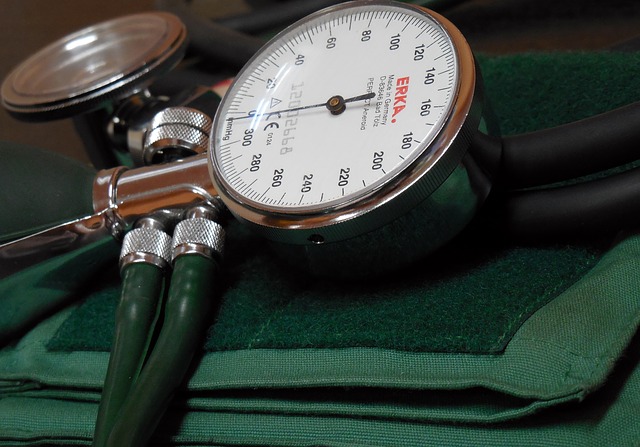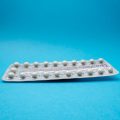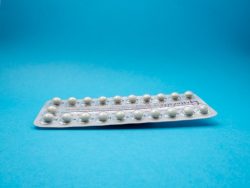On March 6th, 2019, I went to the podiatrist. When I was in the exam room, the receptionist asked if she could take my blood pressure and weigh me. I said, ‘I’m here for my feet, but okay.’ I was agitated that she was asking for these readings, but I allowed her to take my blood pressure. She said it was 147/117. I said, ‘I have always been ‘120/80.’ She repeated the blood pressure and got another similar reading. I honestly didn’t think anything of it. I figured their cuff needed calibration and she was irritating me with her asking. That evening, I mentioned the high blood pressure result to my husband and he said, ‘Don’t we have a blood pressure cuff in a cabinet somewhere?’ I knew that we did, so we put new batteries in it, fired it up, and wouldn’t you know I got a very high reading–something like 161 over 100-something?!? I took some additional readings and they were all high as well. My husband used the cuff and his blood pressure was 120 something over 80 something. I then knew I had a problem.
I called my primary the next day and asked for an appointment for a physical. I got an appointment for the following week. One of the first things the nurse did was to take my blood pressure and it was 170 over 100 something. The rest of my exam went fine. Later in the visit, primary repeated the blood pressure and it came down, but only to 150 over 100 something. They did an EKG and listened to my heart, which looked/sounded normal. I discussed my current health status: no symptoms of high blood pressure (no blurry vision nor headaches). I had lost about 20 pounds in the past year and was maintaining it. I eat healthy (low carbs, low sugar) and greatly increased my fruit/veggie intake (keto-style diet). I don’t smoke and never have. I don’t use drugs. I exercise about 6 days a week and I honestly am in the best shape of my life: I am 39 years and am 5’5, about 130 pounds. I get good sleep almost every night and don’t feel stressed about work or anything in particular, for that matter. I do drink alcohol, but no more than twice a week (2 nights), when my husband and I go to dinner. The amount of alcohol I consume is a little bit more than my primary likes, but I’ve been on this schedule for a few years now, so he wasn’t that concerned. When I do drink, I drink mainly white or red wine (several glasses).
I have been on birth control pills for 22 years: Ortho Tri Cyclen for about 5 years and then Ortho Tri Cyclen Lo for the rest of the time. From what I understand, Ortho Lo pills have some of the lowest estrogen out there. I did stop the pill a few years ago to see if the extra weight I was carrying was due to taking it (nope!), and had very bad withdrawal effects. I developed terrible acne around my mouth and heavy, unpredictable periods. I went to the dermatologist for the acne, who prescribed an antibiotic, and told me to go back on the pill. I’d guessed I’d be a pill-for-life girl. My ob/gyn at the time liked me on the pill to keep my ovarian cysts small.
Regarding other medications, I take an over the counter allergy pill year-round for seasonal allergies, a multi-vitamin, vitamin D (a physical in the past showed I was low), calcium, an interstitial cystitis medication, and recently started turmeric (a dermatologist recommended this for my skin) and caprylic acid. I read caprylic acid is a good probiotic–as I got C Diff about 6 years ago after taking amoxicillin for a tonsillectomy recovery. I have also had years of antibiotic over-prescription for what my doctors thought were UTIs but were really interstitial cystitis. I had also been taking a liver support supplement.
So back to how I recently lost the 20 pounds: I came upon a ‘hormone balancing center.’ I found them by doing a Google search in March of 2018 when my weight was higher than I wanted. I was so discouraged at this point because I had worked with a personal trainer 2x/week for 9 months previous to no avail. The hormone diet worked for me however! I took their ‘proprietary diet drops’ while reducing my caloric intake for a few weeks, as directed. This process mirrors the HCG diet, which I actually had done a few years back and it worked, but I gained the weight back over the years. I slowly added approved foods back, while greatly reducing sugar and carbs.
Cut to April 2018: I was down the 20 pounds. The hormone center claimed that many women have out of balance hormones, hence the reason for the extra weight. They didn’t necessarily want their customers on the birth control pill, but I wasn’t going to stop it for this diet. I spotted early throughout the diet, which of course, they had never heard of. Keep in mind, they are not medical professionals, only counselors. Their founder is not a doctor. So, after I lost the weight and learned how I should be eating, the center said that I should maintain my weight via their two hormone creams (stress-reduction and progesterone). I was to use one of the creams twice a day for the 3 weeks I was on my active birth control pills and use a progesterone cream once a day for the week I was on the placebo birth control pills. There was some miscommunication with how my counselor told me I should be using the creams for a few months, so I was over-using the progesterone cream. I told her about this and she said that I’d just ‘pee out the excess,’ which I know is not accurate.
I know hormones stay in your fatty tissues for quite some time and aren’t just flushed out. I am in the clinical research/pharmaceutical field and have been for 17 years, so I have learned lots about pharmacokinetics and pharmacodynamics. I also started taking (on my own–not under the direction of the center), some natural ‘diet drops’ that I found online. I didn’t think it would hurt since the ingredients looked natural to me and I felt fine while taking them. They were a lot like the diet drops the center had me take in the beginning of my calorie reduction phase of their diet. By the way, before any of this had started with the blood pressure concerns, it was last checked at my annual ob/gyn exam in May of 2018 and it was 122/79.
I didn’t know that I would be using the creams at the time of my last ob/gyn exam, so I didn’t tell my Ob/Gyn about them. In fact, I hadn’t started them until a few weeks after my visit with her. I had some cosmetic surgery in August of 2018, (this would have been three months on both the creams and the diet drops concomitantly) and my pressures were normal before/during/after surgery. That was the last time my blood pressure was normal. I had no idea all these months that it was high and if it weren’t for the podiatrist, the next time it would be checked would be this May, when I go back to my ob/gyn for my annual exam.
At my recent physical with my primary, he scheduled me for bloodwork and urine (cholesterol, CBC, aldosterone, thyroid), and all of this came back normal and within range. I do not have high sodium nor cholesterol levels. He referred me to a nephrologist, who I see on April 4th. He also scheduled me for an Echocardiogram (April 9th). He also prescribed hydrochlorothiazide: 12.5 mg to be taken once a day in the morning. I started this on 3/26. My blood pressure has been pretty good since I have been taking the medication (120s over 80s). I told my doctor I do not want to be on bp medication and want to know the CAUSE of the high blood pressure. He really thinks one of the supplements I was taking is contaminated since supplements aren’t under FDA scrutiny. I did stop them (except for the bc pill and allergy pill) and the bp was decreasing for several days, but started to increase day by day again.
In summary, I feel that either the diet drops and/or the hormone creams are to blame, since they are the newest additions to my life, since I discovered the high bp, plus the creams stay in my body for awhile, so who knows how long they can linger. I stopped all three of these (creams and drops) since I had my first primary visit. I called my Ob/Gyn (under the direction of my primary) and her advice was to stop the pill (keep in mind she has only met me once for last year’s annual exam–we don’t have a long-standing relationship). I really didn’t want to stop the pill right away–not so much for birth control reasons but for fear of the acne and heavy periods. I should mention that the brand name Ortho Tri Cyclen Lo is unfortunately no longer being manufactured and for the past 2 months I have been forced to take the generic version of this: Tri Lo Marzia–which I am not a big fan of. The formulations of the two pills hormone-wise is the same, but my primary thinks maybe it is something in the binders of the generic which is spiking my blood pressure? It is kind of odd that I ‘change’ the pill (although brand name to generic) and we discover an issue.
Both of my parents had/have high blood pressure, but not until later in their lives. My mother has always been overweight and never exercised and my father smoked most of his life and had poor diet/exercise habits. So, this whole thing is very worrisome to me. I do not have any other health issues, nor have I ever had a health issue. I was especially upset to hear of Luke Perry’s passing at such a young age due to a stroke. I know that the pill increases womens’ risks for clots, but my Ob/Gyns always told me as long as I don’t smoke, I should be fine to take the pill as long as I want. What is going on here? Is it the pill all of a sudden? Is it the switch from the brand name to the generic pill or the two creams from the hormone center? Perhaps it is the diet drops or a contaminated supplement or a weird interaction of any of the above? Or is something wrong with my kidneys and/or heart? I will find out later this month about the kidney and heart status after I see the nephrologist/get the Echo done.
We Need Your Help
More people than ever are reading Hormones Matter, a testament to the need for independent voices in health and medicine. We are not funded and accept limited advertising. Unlike many health sites, we don’t force you to purchase a subscription. We believe health information should be open to all. If you read Hormones Matter, like it, please help support it. Contribute now.
Yes, I would like to support Hormones Matter.
Image: Oregon State University/Flickr












